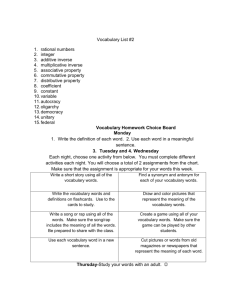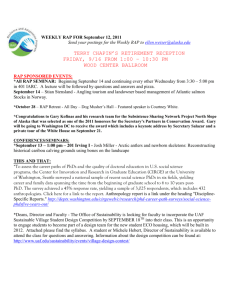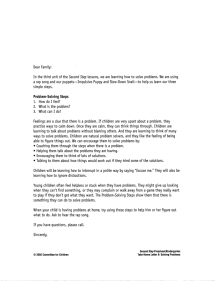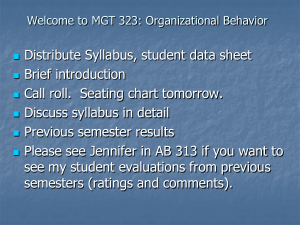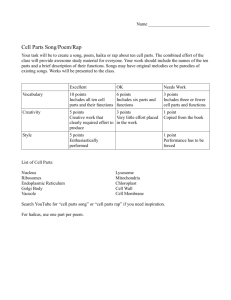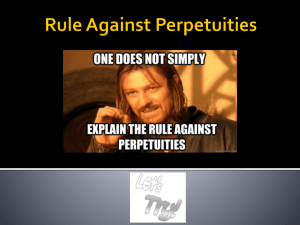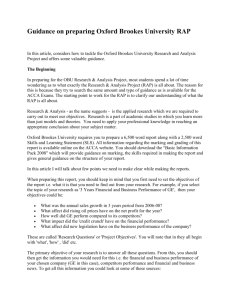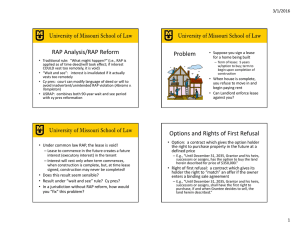Rule Against Perpetuities
advertisement
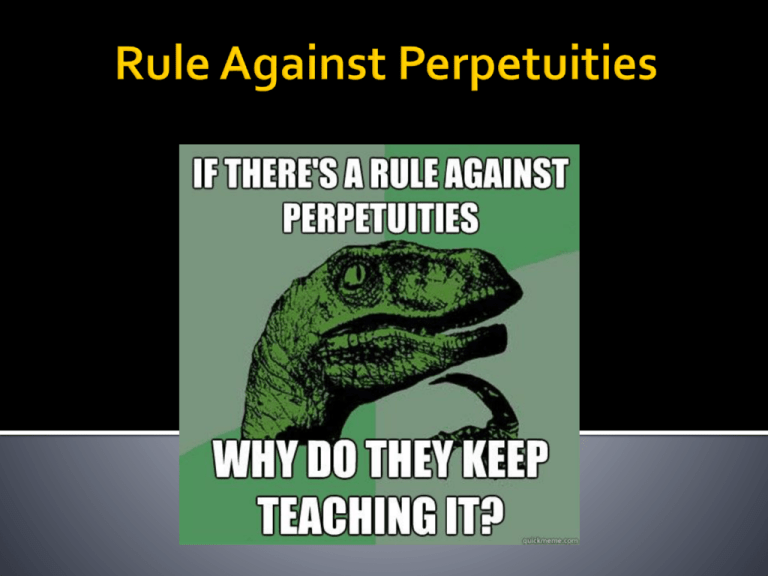
An interest is not good unless it must vest, if at all, not later than 21 years after some life in being at the time of the creation of the interest, plus a period of gestation. All of the following must be true for RAP to apply: Future interest (not present interest), Partially or totally contingent (not totally vested), and Held by a non-charitable transferee (not grantor). Thus, if you classify an interest as one of the following, you must check for a RAP violation: Contingent remainder, Vested remainder subject to open, and Executory interest (including a trust). No other interests require a RAP analysis!! The violating interest is void from moment of creation. Read grant as if the violating interest is not there. Analyze grant from date of creation: Deed = when the grantor executed the deed Will = when the testator died If any fact pattern could violate RAP, then RAP is violated, regardless of how unlikely it is to happen. No one is ever too young or too old to have children. No one’s death is imminent regardless of how old or ill. 6:00 a.m. = all lives in being give birth to a healthy baby. Noon = all lives in being die but were successful in saving all of the babies born earlier in the day. At 12:01 p.m., do you know for sure that the interest will vest (or not vest) by the end of 21 years? If yes = RAP not violated; interest is OK. If no = RAP is violated; interest is void 1. Classify interests as written. 2. See if RAP applies to each interest. 3. If yes, apply RAP analysis. 4. If RAP violated, strike out interest. 5. Reclassify and repeat. “To A and his heirs for so long as no liquor is consumed on the premises.” “To A and his heirs for so long as no liquor is consumed on the premises, but if liquor is consumed on the premises, then to B and her heirs.” “To A and his heirs as soon as liquor is sold on the premises.” “To A for life and then to those children of A who attain the age of 25 and their heirs.” No child has attained age 25. “To the American Red Cross, but if the land is not used for hospital purposes, then to The Ohio State University Moritz College of Law.” “To A for life, then to A’s children for their lives, and then to A’s grandchildren and their heirs who are living when A’s last surviving child dies.” A has two living children, X and Y. 1. Wait and see 2. Expand time period 3. Reformation using cy pres 4. Uniform Statutory Rule Against Perpetuities 90 year period Runs from date of grant (rather than death of lives in being) Wait and see If still violates, mandatory reformation 5. Repeal 6. Ohio “Any interest in real or personal property that would violate the rule against perpetuities * * * shall be reformed, within the limits of the rule, to approximate most closely the intention of the creator of the interest. In determining whether an interest would violate the rule and in reforming an interest, the period of perpetuities shall be measured by actual rather than possible events.” Special rules for trusts which can exclude a trust from RAP. “every first-year law student’s worst nightmare”

